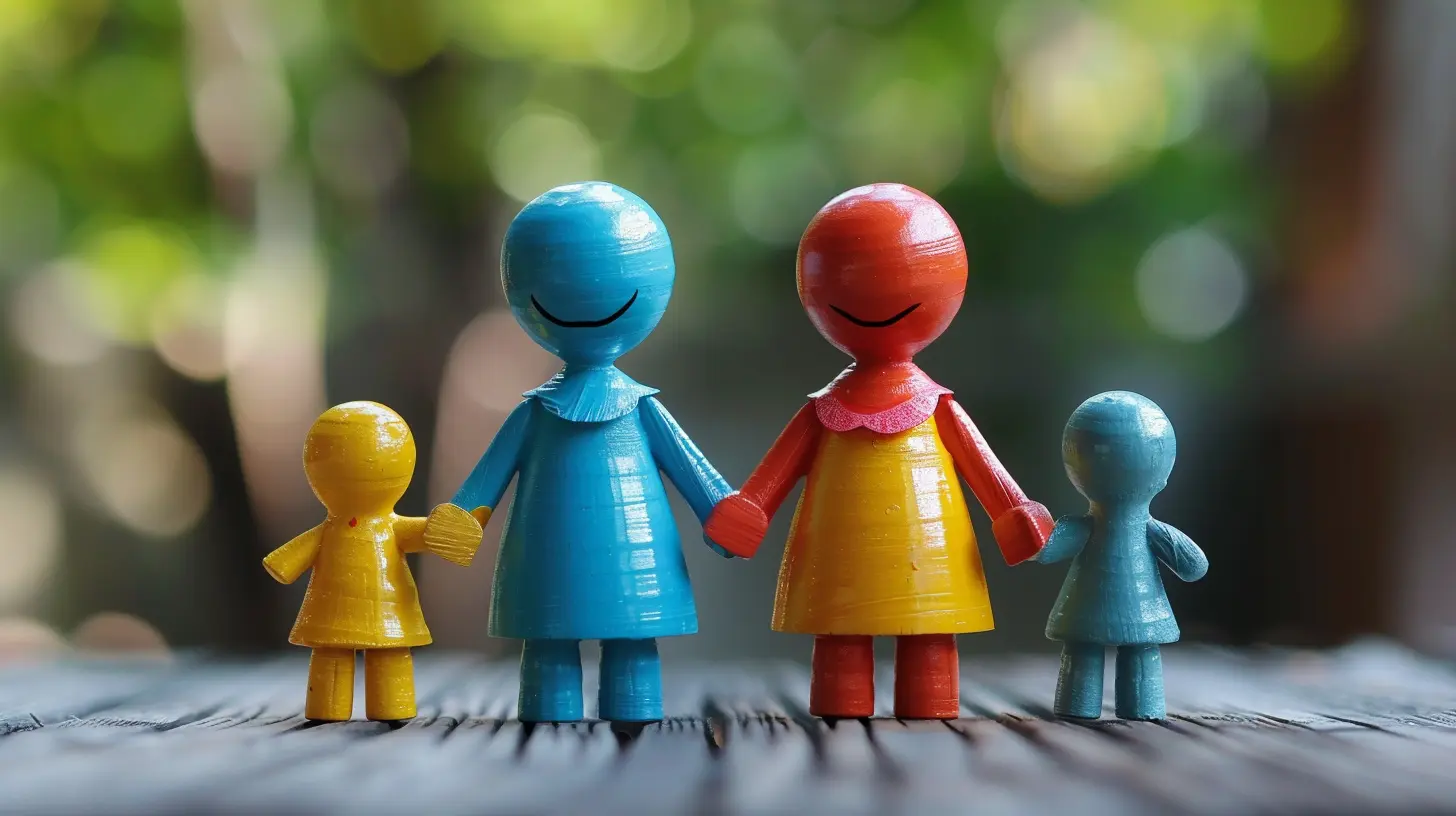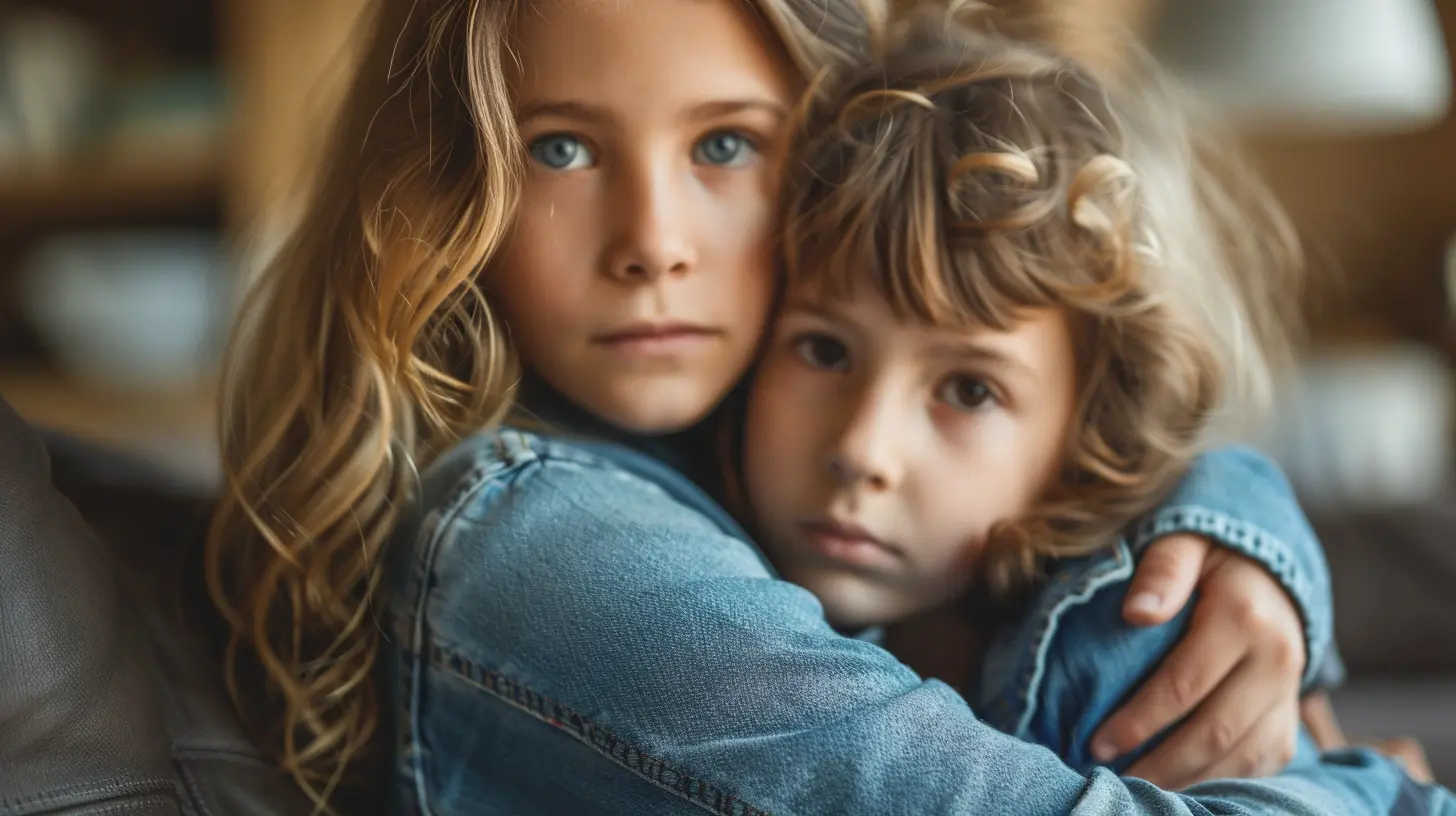How Family Dynamics Impact Your Child’s Mental Health
15 August 2025
Imagine your home as a living, breathing ecosystem. Every word spoken, every glance exchanged, every moment spent (or missed)—they all ripple through this space like waves in a pond. And at the heart of this delicate system? Your child. Kids are remarkably observant. Their eyes catch more than we think, their ears tune in when we least expect, and their hearts soak up the emotional tone of the home like little sponges. So, what happens when the family dynamic takes a turn—for better or worse?
Let’s dive deep into this mystery. You might be surprised to uncover just how much your family dynamic could be impacting your child’s mental health. Stick with me. We’re not just talking psychology—we’re peeling back layers of everyday life.
What Exactly Are Family Dynamics?
You hear the term tossed around a lot, but what does it really mean? In simple terms, family dynamics refer to the patterns of interactions, relationships, roles, communication styles, and emotional connections among family members. Think of it as the 'vibe' of your household.Some families are warm and nurturing, some are chaotic and unpredictable, others are distant and formal. Each type creates a unique psychological environment for a child. And like plants in a garden, kids either thrive or struggle depending on how fertile that environment is.
The Building Blocks That Shape a Child’s Inner World
Not every child reacts to the same situation in the same way. But there are several consistent factors within family dynamics that heavily influence a child’s mental wellbeing:1. Communication Style: The Silent Influencer
How do family members talk to each other? Is there yelling? Silence? Sarcasm? Or perhaps open and respectful dialogue?When communication is aggressive or absent, children often internalize negative lessons like: “My voice doesn’t matter” or “It’s unsafe to express myself.”
But when communication is healthy—clear, open, and supportive—kids feel heard. They learn it’s safe to talk about feelings, and that can reduce anxiety, depression, and behavioral issues.
2. Parental Relationship: The Blueprint for Relationships
Whether you’re married, divorced, co-parenting, or raising children solo—your romantic or parenting relationship sets an example.Children observe closely how their parents treat one another. They watch conflict resolution (or the lack of it), affection, criticism, teamwork, and blame. A high-conflict or emotionally distant marriage can create anxiety in kids, while a healthy partnership builds their trust and emotional security.
3. Sibling Interactions: More Than Just Squabbles
Ah, sibling drama—the classic chaos. But those little fights and friendships are more than background noise.In loving, supportive sibling relationships, kids learn empathy, negotiation, and how to manage emotions. But if one child constantly feels pushed aside, compared, or scapegoated, it can lead to low self-esteem or acting out.
4. Parenting Styles: The Emotional Compass
Are you more of a laid-back parent? Or maybe you enforce rules like a drill sergeant?Authoritative parenting (firm but loving) tends to produce the most emotionally resilient kids. Meanwhile, overly strict (authoritarian) or overly lax (permissive) parenting can generate confusion, fear, or insecurity in children.
When kids don’t know where the emotional or behavioral boundaries are, they often feel either lost or out of control.
The Hidden Impact: Emotional Echoes in a Child’s Mind
Kids don’t always have the words to express what they’re feeling. So mental health struggles often come out in surprising ways. Here’s where those mysterious echoes pop up:Anxiety and Depression
A tense, unpredictable home can make a child feel like they’re walking on eggshells. Over time, this constant stress can manifest as anxiety. Kids who feel emotionally unsupported may withdraw, lose interest in hobbies, or struggle to find joy—classic signs of depression.Behavioral Issues
Acting out is sometimes a silent scream for help. Children from emotionally volatile households might become aggressive, rebellious, or overly defiant. It’s not that they’re “bad”; they’re reacting to a world that feels unsafe or out of control.Low Self-Esteem
When kids feel invisible, criticized, or constantly compared, their self-worth takes a hit. They may become people-pleasers, avoid challenges, or be paralyzed by self-doubt.
How Conflict and Emotional Climate Play a Role
Not all conflict is bad. Constructive conflict—where disagreements are handled calmly and respectfully—can teach kids resilience and problem-solving. But constant, unresolved fights can erode a child’s emotional foundation.Let me ask you this: Would you feel calm in a room where people constantly shout or say nothing at all? Kids don’t either. That emotional climate seeps into their inner world, shaping how safe or anxious they feel on a daily basis.
The Unseen Toll of Emotional Neglect
Sometimes, it’s not what happens—but what doesn't happen—that does the most damage. Kids need more than food, clothes, and school supplies. They crave emotional connection.When parents are emotionally unavailable—too busy, detached, or dismissive—children can feel emotionally abandoned. Over time, this can lead to attachment issues, difficulty trusting others, and chronic feelings of worthlessness.
Breaking the Cycle: The Power of Awareness
Here’s the good news: family dynamics aren’t set in stone. They’re more like clay—moldable, fixable, changeable.The first step to creating a healthier family environment? Awareness. When you start noticing the patterns—how you talk, argue, connect—you can begin to shift them.
Ask yourself:
- Do I listen when my child speaks?
- Do I model regulation and empathy?
- Do I let my child see vulnerability, not just authority?
- Is there emotional warmth in our home, even after stressful days?
Small Changes, Big Impact
You don’t need a complete family overhaul. Sometimes, small, consistent changes make the biggest difference.- Speak the love language: Some kids need hugs. Some need words. Some just want your time. Figure out what fills your child’s emotional tank.
- Show rather than tell: Teach emotional regulation by managing your own stress around them.
- Rituals matter: A night-time chat, weekend breakfast, or even a simple five-minute “how was your day?”—these build predictability and connection.
- Apologies go far: When you mess up (and we all do), let your child see you apologize. It teaches humility and forgiveness.
- Encourage expression: Make it safe for your child to talk about fears, mistakes, and emotions without judgment.
When to Seek Support
Some family dynamics are deeply entrenched and may need more than at-home adjustments. If your child displays signs of prolonged anxiety, depression, self-harm, or drastic behavioral shifts, it’s okay to ask for help.Family therapy, parenting workshops, or individual counseling can illuminate blind spots and offer tools that transform not just the child’s life—but the entire family unit.
The Butterfly Effect of a Healthy Family
Think about this: a child raised in a mentally safe and emotionally rich environment doesn’t just grow up happy. They become adults who…- Form healthy relationships
- Handle conflict with maturity
- Trust their instincts
- Believe in their self-worth
- Break toxic cycles
And that? That’s the ultimate legacy we leave behind.
Final Thoughts: It Starts With One Small Shift
Let’s be real—perfect families don’t exist. Every family has a little chaos, a little drama. But awareness is powerful. When you understand how family dynamics flow into your child’s mental health, you gain the power to steer the current.So, here’s my challenge to you: look around. Listen differently. Hug longer. Speak softer. Heal loudly.
Your home is the soil. Your child is the seed. And you? You're the sun, rain, and gardener, all in one.
Change the environment, and just wait to see what blooms.
all images in this post were generated using AI tools
Category:
Mental HealthAuthor:

Maya Underwood
Discussion
rate this article
1 comments
Denise Morris
Healthy family dynamics are essential for nurturing strong mental health in children.
September 1, 2025 at 2:35 AM

Maya Underwood
Absolutely! Positive family dynamics create a supportive environment that fosters emotional well-being and resilience in children.


